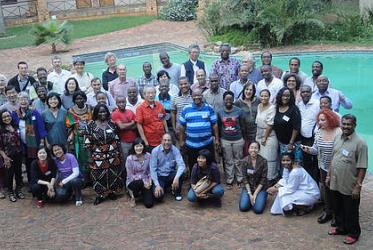Displaying 1 - 15 of 15
28 February 2022
Climate crisis fuels existing water injustice
27 October 2021
G7 must address famine
22 May 2017
New videos help congregations hasten HIV response
20 October 2016
GEM school ends with hope for a better tomorrow
08 September 2016
Consultation considers right to food in context of climate change
15 December 2015
Churches engage in development dialogue on Africa
06 March 2013









